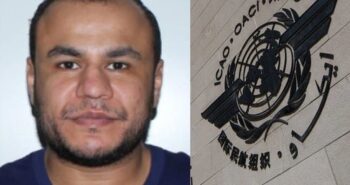By Mary Fitzgerald and Tarek Megerisi
The question of housing, land and property rights is so difficult—and so important—because it touches on the fundamental question facing post-2011 Libya: what do Libyans want the new Libya to look like?
This paper will examine both the history and the current impact of Qaddafi’s redistribution laws. In addition, we will ask what we can learn from the failed efforts to resolve these property conflicts since
***
CONCLUSION
Qaddafi’s distributive reforms of the 1970s and 1980s dramatically reshaped Libya, and their destructive legacy still haunts the country today. The post-2011 authorities and their international partners have so far failed to contain the fallout. Although policymakers are focused on the present violence, understanding the context and the impact of Qaddafi’s policies will be key to peacetime stability and progress.
Trust and the Rule of Law
The creation of extraordinary legal bodies (such as revolutionary courts) to implement reforms, the confusion caused by enacting conflicting statutes, and the proliferation of institutions without a hierarchy stripped the legal system of the people’s trust.
The ruthless methods employed by Qaddafi to impose his system and penalise his opposition distorted the concept of justice, rendering it in zero sum terms. This was repeated in the aftermath of the revolution as the victors punished those accused of supporting Qaddafi’s regime. And because there was no way of resolving conflicts apart from the notion of ‘might is right’, conflicting parties after the revolution believed they could secure what they wanted without having to compromise.
To break this cycle of violence, Libyans must once again believe in the rule of law. This can only happen when the law is applied to all transgressors, rather than just those on the losing side of the latest conflict, and when people believe that the system can work for them as well as against them.
The process of addressing the property rights dilemma in Libya could be an opportunity to create an early, positive, experience of this.
Private Sector Development
Qaddafi’s redistribution reforms, the state’s control over all economic activity and the subsequent flight of the landed and entrepreneurial classes destroyed the private sector and created a textbook rentier economy.
The reforms also led to a severe housing crisis, a climate of unpredictability that scared off foreign direct investment, and a gap in local expertise rendering the state reliant on foreign firms for development projects.
The continuous conflict in Libya in the aftermath of the revolution has exacerbated its economic problems. Any housing, land and property resolution process will be an important step in creating trust in the long-term security of property and other investments.
Additional reforms will be needed to improve the poor economic conditions in the country, conditions that were central to sparking the 2011 revolution and which continue to fester. Encouraging private-sector growth would take some of the burden off the old cumbersome state enterprises and help decentralise the country.
Furthermore, demand-driven training programmes could be implemented to increase the technical capacity of Libyans in both the public and private sectors. Previous ambitious projects suffered from a lack of follow-through and engagement.
Tying a training programme to a complex public project such as the
resolution of housing, land and property rights could help assuage the greatest fear of interviewees for this study: that Libyan institutions do not have the technical capacity to institute a resolution process.
Ownership over the Political Process
If one looks at Qaddafi’s redistribution reforms as simply a mechanism for exerting control, the political disorganisation in the country after his fall becomes more understandable. Qaddafi’s legitimacy as a ruler derived from patronage: institutions were often created merely to employ his supporters, with parallel institutions set up to implement his policies.
Fixing the legacy of Qaddafi’s bloated public sector will not be easy. As a system, it cannot be swiftly dismantled, as the vast majority of the Libyan population live off the salaries it pays. If the crux of Qaddafi’s system was patronage, then the crux of the current conflict is the question of how Libyans can access the source of that patronage: Libya’s hydrocarbon wealth.
There is little feeling that citizens have much ownership of the political process, despite the democratic principles invoked at the start of the revolution. But that is why a constructive first experience of ordinary citizens sharing ownership over a political process is so important. By addressing past actions done in the name of the state, and by including victims and transgressors in finding a solution, a land, housing and property rights process could be a step in the right direction.
Transitional Justice
Finally, the rivalries created by Qaddafi’s policies created patterns of resentment and cycles of revenge which still exist. Many of the tribal conflicts that broke out towards the end of the 2011 revolution have their roots in the policies of preferential treatment for Qaddafi’s allies. Many acts of revenge and alleged war crimes, perpetrated since the revolution show the hallmarks of Qaddafi’s own procedures.
Enemies are deemed traitorous and have their homes confiscated. At times, their communities suffer collective punishment and forced relocation. Moreover, the regional competition to secure funding for developmental projects in place of any national strategy still reflects the culture embedded by Qaddafi’s land-based policies.
Ultimately, the question of housing, land and property rights is so difficult—and so important—because it touches on the fundamental question facing post-2011 Libya: what do Libyans want the new Libya to look like? That the answer to this question now seems more elusive than ever points to the most tragic mistake of the post-revolutionary period, namely that there was no discussion. There was no serious
transitional justice process and no dialogue between the winners and the losers of Libya’s revolution about how to move forward and live constructively side by side. Housing, land, and property rights issues are inextricably linked to the broader issue of transitional justice and, ultimately, of Libya’s national identity.
Of course Libyans need safety, security and a political resolution to the conflict. But there will be no long-term stability until Libya finds a way to deal with its past, and talk about its future.
***
The Authors
Mary Fitzgerald is a journalist and analyst specialising in post-Qaddafi Libya. She has reported from Libya since February 2011 for media including the Economist, the BBC, Foreign Policy, The New Yorker, the Financial Times and the Guardian. She lived in Libya throughout 2014. She is a contributing author to The Libyan Revolution and Its Aftermath published by Hurst/Oxford University Press.
Tarek Megerisi is a political analyst and consultant specialising in Libya and the wider Middle East. He has worked closely in an advisory capacity on Libya’s post-revolutionary transition with Libyan political bodies and international organisations. Currently based in London, he has contributed commentaries on Libya to the Carnegie Endowment’s SADA centre, Italy’s Limes magazine, Muftah magazine, and the Fair Observer among others.
***
The Contributers
Rhodri C. Williams is the Rule of Law Program Manager for the International Legal Assistance Consortium (ILAC). Based in Stockholm, Williams coordinates a large, integrated set of rule of law programs supporting partners in seven countries of the Middle East and North Africa region. Prior to working for ILAC, he worked for ten years as a consultant on humanitarian, human rights, rule of law and transitional justice issues in fragile and post-conflict settings such as Bosnia, Cambodia, Colombia, Cyprus, Georgia, Kosovo, Lebanon, Liberia, Libya, Serbia and Turkey.
Peter van der Auweraert works as Head of the Land, Property and Reparations Division at the International Organization for Migration (IOM) in Geneva, Switzerland. He has worked on rule of law, post-crisis land and victims’ reparations issues in a number of countries and was part of a small UN-team engaged in mediation on land and property issues among local political actors in Kirkuk, Iraq. Prior to joining IOM, Peter Van der Auweraert was Executive Director of Avocats Sans Frontières (ASF).
________________




